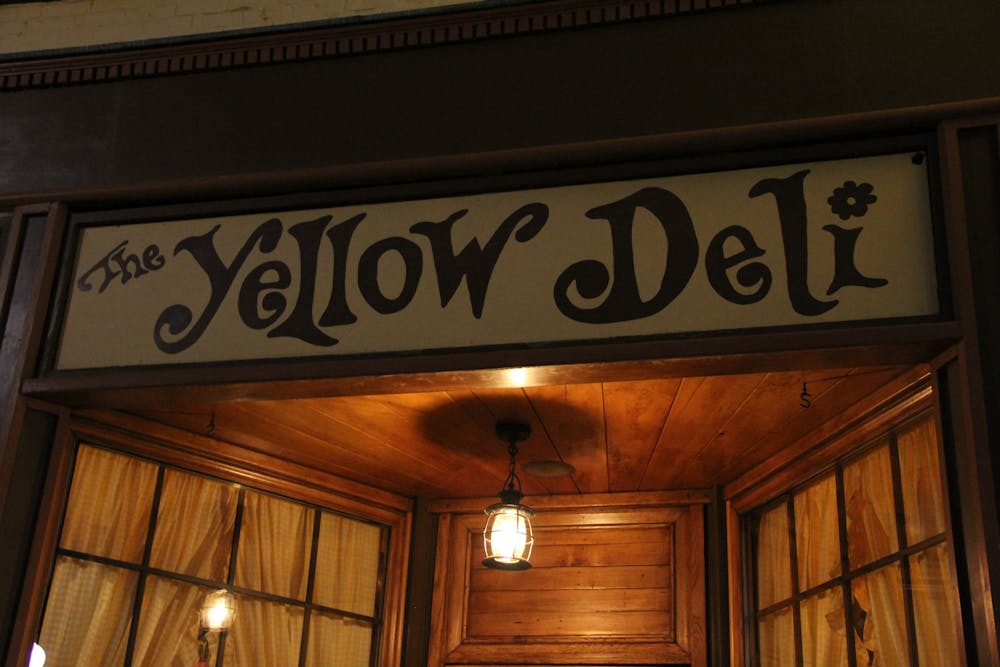From the outside, the Yellow Deli doesn’t seem controversial. It’s nestled between shops on a busy street in the heart of Rutland. Large yellow signs advertise its hostel for Appalachian Trail hikers and its policy of being open 24 hours a day, four days a week. Surrounding the restaurant are bookstores, a theater, and an alley where local musicians play live music.
The vibrant energy continues into the deli. A bustle not often seen in sleepy Vermont is contained within the muraled walls. Patrons come in and out at all times, day or night. Everything about the interior design is unique. Roofs (made from reclaimed barns) cover booths, the specials menu is hand-drawn and the ornate wood tiled ceilings are original to when the building was built in the early 20th century. The lights bathe everyone in a warm orange-red glow, and every inch of wall is covered with art.

A mural inside the deli depicting the hippie movement
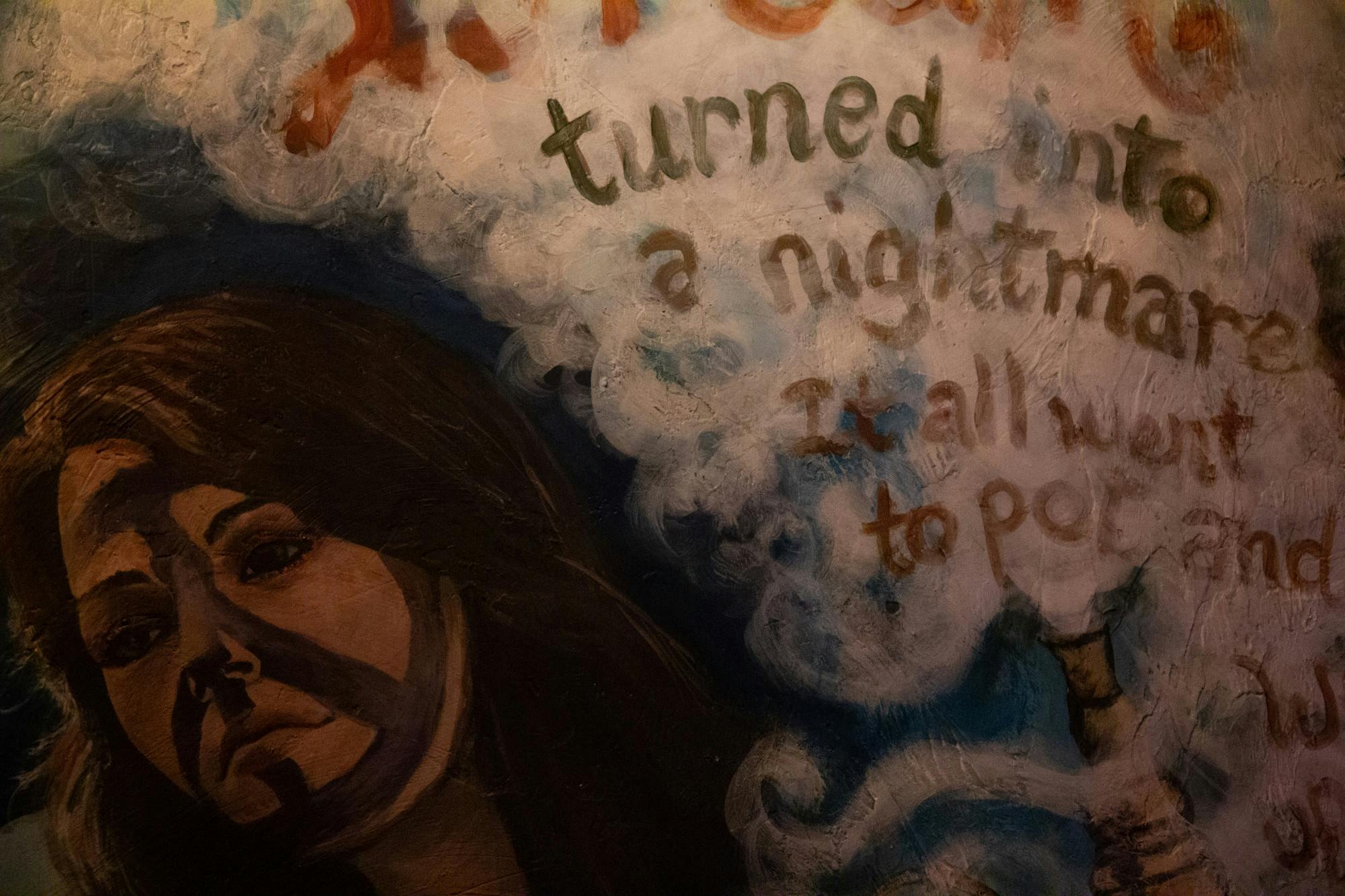
A mural inside the deli depicting the hippie movement
Catchy yellow paint announces a “Market and Lounge” past a corridor. Walking through leads to a shop selling yerba maté, handmade soap and body care products. While it may seem like a typical, if off-beat, restaurant, the Yellow Deli is actually part of an alternative religious community that spans the globe.
The community, called the Twelve Tribes, was founded in the 70s during the Jesus movement and after the end of the hippie movement. They came together around the idea of collective living outside mainstream society in order to better practice their religious beliefs.
According to their website, there are 15 Yellow Delis across the US, a handful in Canada, and one in Japan, England, Argentina and Australia each. They have communities in Brazil that farm the leaves to make their yerba maté. Another group of theirs has a farm in Vermont, making their soaps and body washes.
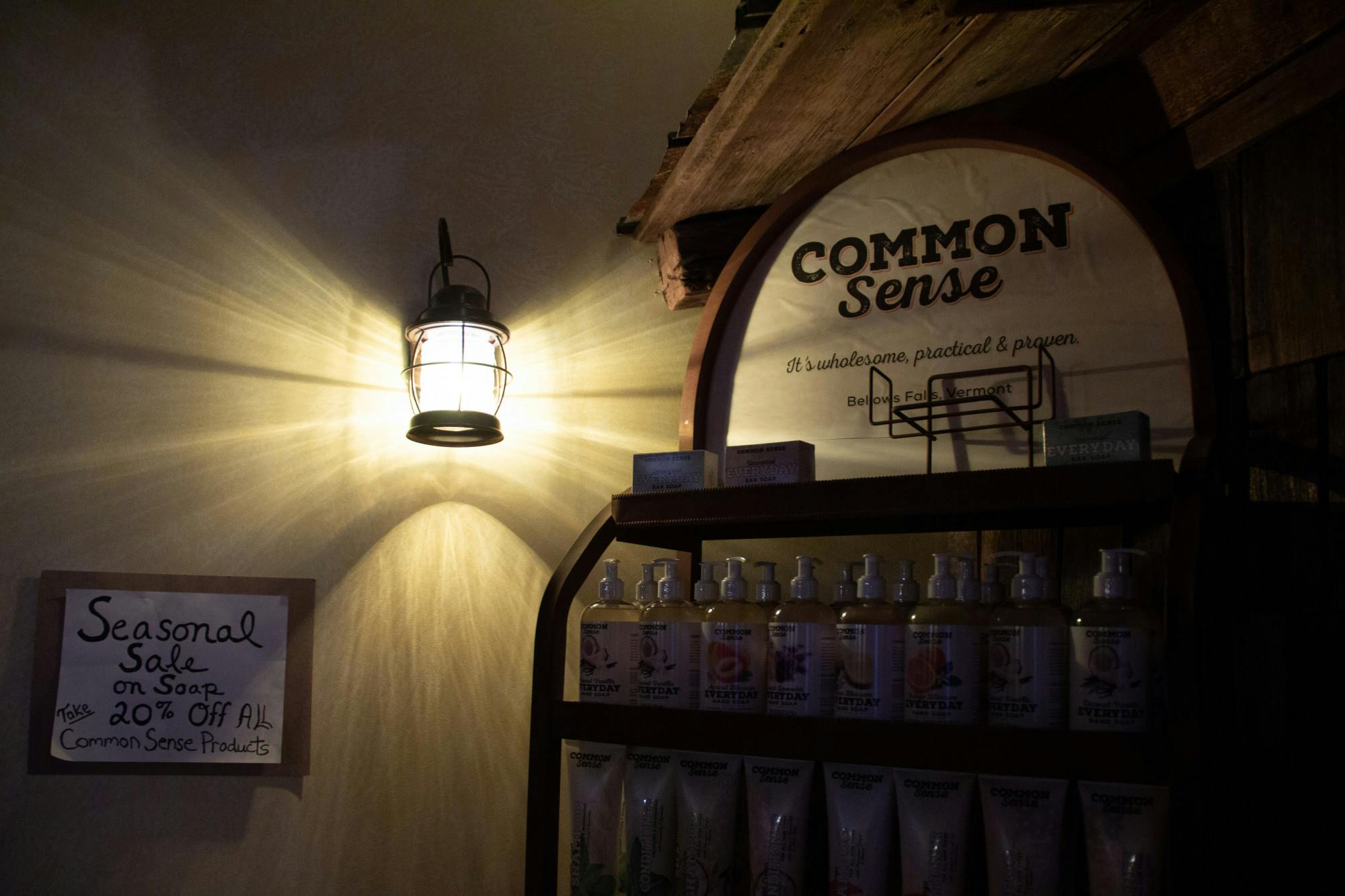
Steven and Barkai are the two managers of the deli. Between them, Steven has been there the longest. He joined the Rutland community and the Yellow Deli in 1996. Feeling the need for a spiritual connection in his life, Barkai found the North Carolina community working at an organic farm and joined them in 2009 before relocating up to Vermont.

Barkai

Steven
Everyone in the Rutland section of the group works at the deli in some fashion. Steven and Barkai explained that the community members provide all the services for the restaurant, including the electrical work, carpentry, and mural paintings. They explained that every member partially owns the deli — they’re all “shareholders”. “We’re like a family,” Steven said.

Mittens handmade by the community
While they don’t impose their beliefs on visitors , they are eager to share their way of life when asked. The group believes that living together and forming their own rules and laws is the only way to achieve their spiritual and religious goals. “There were the Separatists and the Puritans,” Barkai said, identifying with the religious groups’ urge to ideologically separate themselves from the outside world. They do not believe that their preferred way of life is fully compatible with modern society.

Decorations on the wall

Barkai preparing yerba mat�
The original deli in North Carolina started their 24-hour service after, they say, they received a sign from an angel telling them to do so. This tradition has continued to all the current Yellow Delis, though hours may have been impacted by the pandemic. “We get a lot of firemen and police officers during late night hours,” Barkai said, explaining that the deli has become popular with the emergency services.
The Yellow Deli works to their goal of serving the community through simplicity. In 2008 the group remodeled the restaurant, going back to an original, simpler feel, opting for an open design so that everyone can see inside.

A bible hidden behind a row of body wash
While this openness contributes to them being a staple of their community, the reception of the Twelve Tribes is not uniformly positive. Journalists have produced documentaries, articles and books about the community — racial justice organizations have investigated the Twelve Tribes, as have the FBI.

Steven taking a call

A hand drawn seasonal menu
In late 2021, Middlebury alumni released a YouTube series titled “The Deli People.” The show satirizes the deli and its community members by portraying them as white-robed cult members obsessed with sin. When asked about it, the managers grimaced. “‘The Deli People’ filmmakers obviously have never seen our community,” sighed Barkai.
When asked to comment on the Yellow Deli and their show, the creators of “The Deli People” released this message:
“We have recently received word that some members of The Twelve Tribes have seen The Deli People and are disappointed with what they believe to be an inaccurate portrait of their beliefs. For this reason, we would like to apologize and offer a brief word of clarification:
Though we strongly condemn some of the beliefs and alleged actions of members of The Twelve Tribes, our series was never meant to serve as an accurate reflection of those beliefs or actions. We encourage all who are interested in the group to conduct independent research on the matter.”
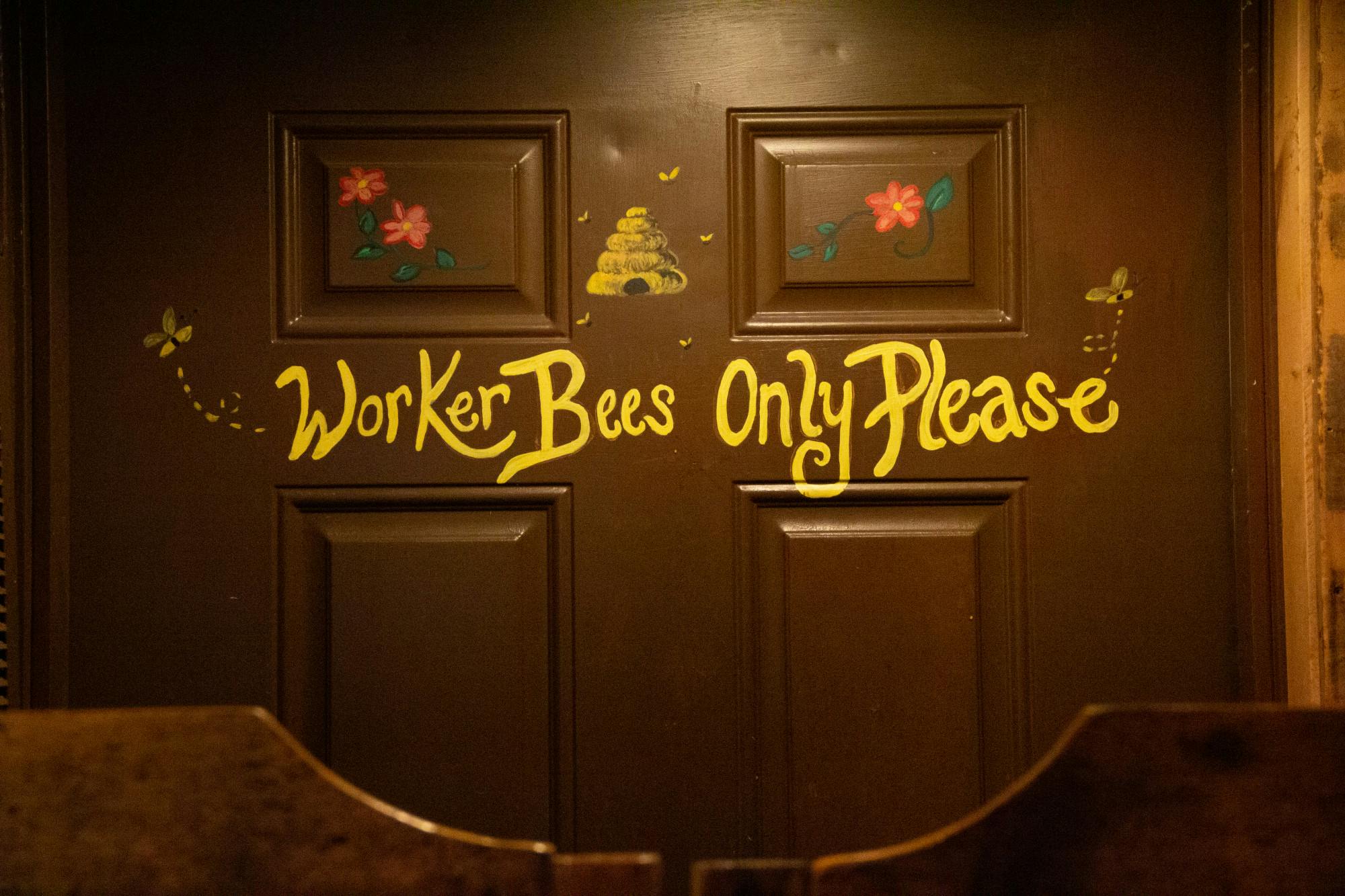
Entrance to the workers only section
Teasing a group about their collective living and separation from society is one thing, but it misses a deeper issue about the Twelve Tribes and their communities. They have a worrying view on homosexuality. “We do not approve of homosexual behavior. We do not regard it as a genetic variation, a valid alternative lifestyle, or a mere psychological quirk. We embrace what God says on this subject without regard for political correctness. Homosexual behavior is immoral and can be mortally dangerous,” their website says in a FAQ section. These beliefs are hard to reconcile with their welcoming demeanor in person at the deli.
In spite of the views the Twelve Tribes has, the constant flux of customers shows that the restaurant is an undeniable staple of Rutland. Walking around the restaurant and its little businesses, there are waiters or patrons at every corner. Locals flow in and out. Rutland gathers here to eat, to socialize, and to shop. The Yellow Deli does not seem to be going anywhere soon.
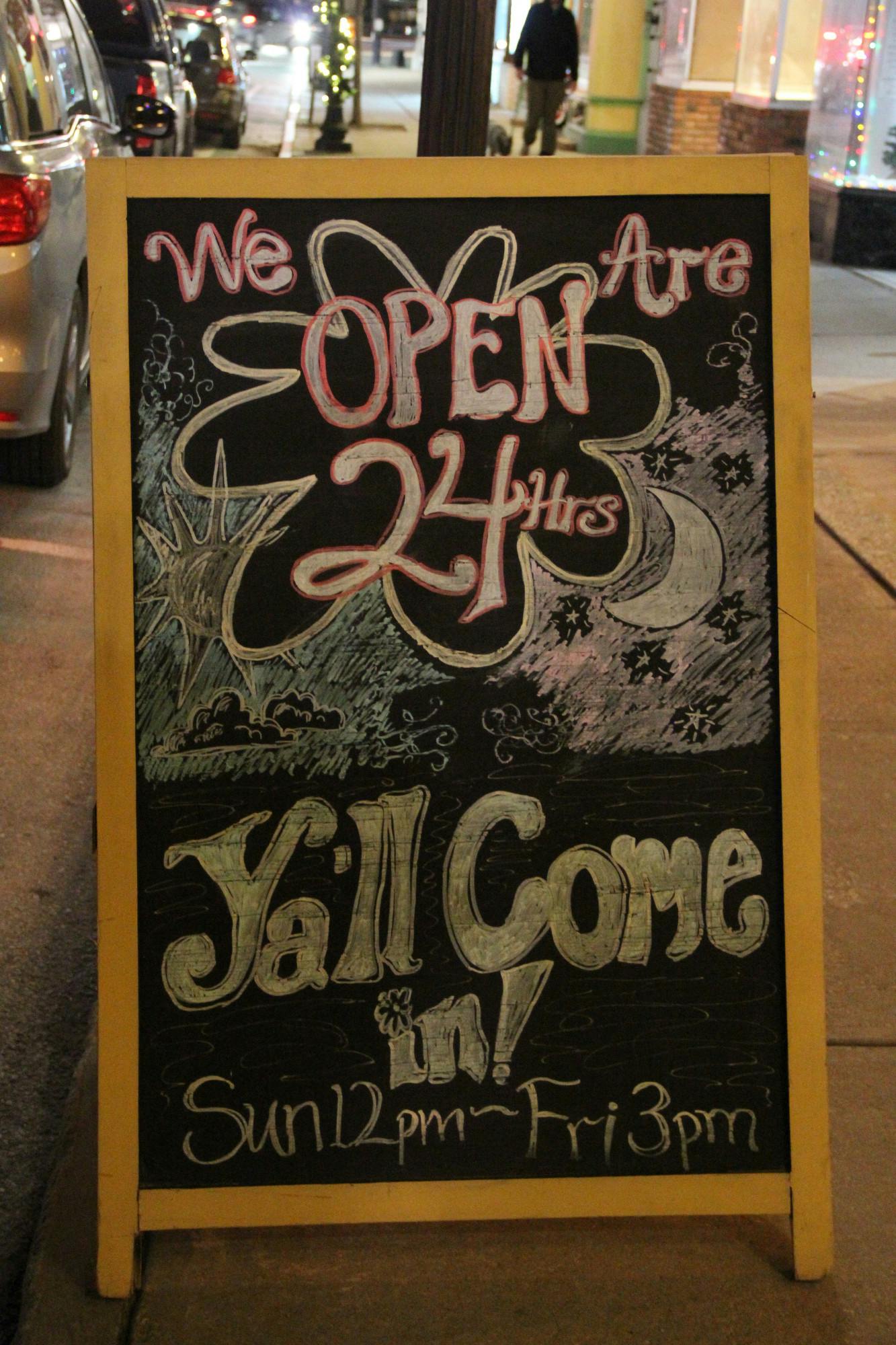
A sign outside the Yellow Deli

